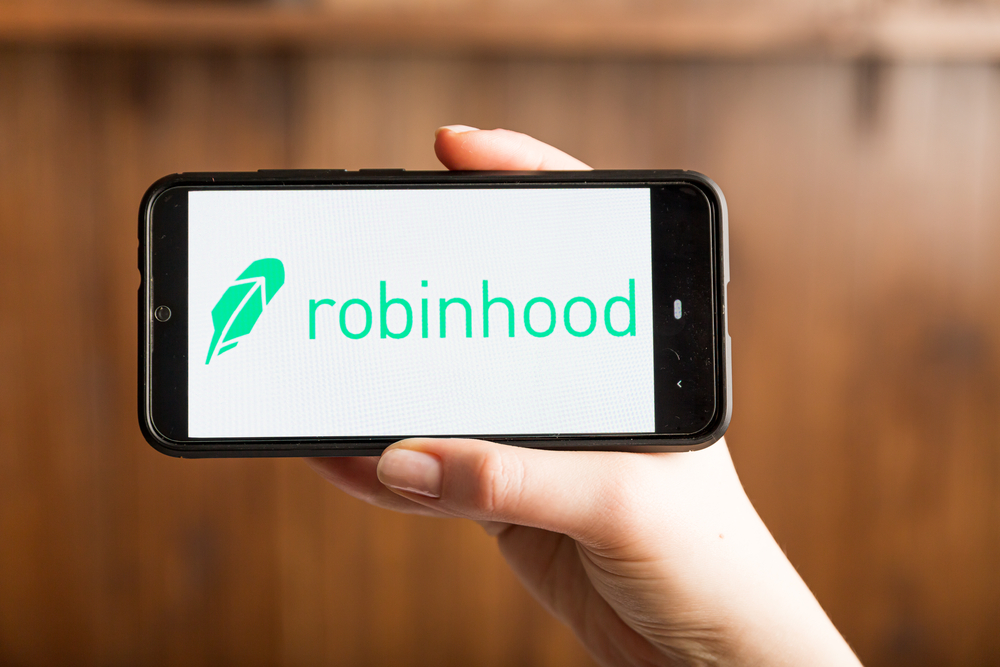Robinhood is an investment app that lets you trade exchange-traded funds (ETFs), stocks, options, and cryptocurrencies. Robinhood was one of the first online brokerages to offer commission-free trades. However, many of their competitors have since started doing the same.
Even without the fee-free advantage, Robinhood remains an excellent way to invest for certain types of investors. It is especially attractive for novice investors who do not need extra bells and whistles.
This platform remains one of the few mainstream brokers that offer cryptocurrency trading, and the app and site are straightforward and simple to use.
With so many options out there, you need to understand the details of what Robinhood offers to decide if it is a good way for you to invest.
Table of Contents
Who Is Robinhood for?
Robinhood is best for investors who want to trade using a smartphone app. The site’s marketing targets younger investors in the millennial generation, but anyone who wants such an app or wants to trade cryptocurrencies may appreciate Robinhood.
Investors who do not mind opening a taxable investment account (the only option available from Robinhood), and those who want a basic margin account will find what they are looking for with Robinhood.
Finally, Robinhood is one of the only mainstream brokers to offer crypto trading, so those who want to invest in bitcoin or other cryptocurrencies may also appreciate Robinhood.
Robinhood Features
Robinhood has both a web trading platform and a mobile app. Though both are available, the main focus is on the mobile app. The app is simple and straightforward, so it won’t appeal to people who want a sophisticated trading tool.
Most of the navigation in the app involves clicking on icons. You can use the search bar at the top, for example, to search for stocks or funds. Once you locate your chosen security, you can click on it to view the charts for different timeframes.
Stocks and funds also have basic information such as an analyst’s ranking, a news feed, and price history.
Other important features include:
- There is no account minimum. However, if you’re opening a margin account, you have to meet the regulatory minimum of $2,000.
- No stock or ETF trading costs. Robinhood does not charge any fees to process trades.
- The no-fee policy also includes options.
- There are also no annual fees, inactivity penalties, or fees for transferring money into or out of your account.
- The only possible fees are $75 for account transfers to a competing online broker and $5 a month for Robinhood Gold, which gives you access to Morningstar Research Reports and NASDAQ Level II Market Data.
- Tradable securities offered include stocks, options, ETFs, cryptocurrencies, and American depositary receipts (ADRs).
- If you refer a friend, both you and your friend get a free share of stock.
- Customer support options include email and chat support via social media.
Pros and Cons
Every investment platform has pros and cons, and Robinhood is no different. The questions for investors are whether the pros outweigh the cons and whether Robinhood offers more positives for your particular investment needs and plans than other platforms.
Advantages of Robinhood
Robinhood’s advantages revolve around features that appeal to novice investors.
- Robinhood was one of the first platforms to offer no-commission trades. Robinhood is an affordable trading app to use because it does not charge fees for regular stock, ETF, options, or cryptocurrency trades. If you trade frequently, you can significantly lower your costs (and increase profits), by avoiding fees. Other platforms have since caught on, and by late 2019, most began also to offer fee-free trades. Nowadays, the lack of fees is not as big an advantage as it once was.
- The only fees that Robinhood charges are $75 when account holders want to transfer their accounts to other brokers. This practice is common among brokers. However, you can avoid this fee by selling your investments or having your money transferred to your bank through the automated clearinghouse and then using it to fund your new account.
- Robinhood does not have account minimum requirements. This policy allows the majority of investors to start trading right away with a brokerage account. All you need to start investing is enough money to buy at least one share of your chosen security. The only minimum required is when you open a margin account, for which you need to make a $2,000 deposit. However, this minimum isn’t a requirement of Robinhood. The Financial Industry Regulatory Authority (FINRA) requires this amount for all margin accounts.
- You get a high-yield savings account in which to keep your cash. Since December 2019, Robinhood has offered a savings account that pays 0.30%. It includes free ATM withdrawals at over 75,000 ATMs around the country, a free debit card, and FDIC insurance coverage up to $1.25 million.
- You can buy fractional shares of some stocks. Robinhood has joined a few other brokers in offering fractional shares. These shares allow investors to pay as little as $1 to own a portion of a share. This option is useful when the full share costs hundreds of dollars, and you only have a few dollars in your account.
What’s the Catch?
The negatives associated with Robinhood mainly have to do with a lack of features that sophisticated investors need.
- There is only one account option. Robinhood only offers individual taxable accounts, also known as brokerage accounts. This fact is a drawback for investors looking for retirement accounts, for example.
- Robinhood has a limited selection of securities. Robinhood does not support bonds and mutual funds. Because of this limited selection, users may miss out on some high-profit trading opportunities that they could access with other brokers.
- Robinhood is below par when it comes to customer support. Robinhood does not offer phone support to customers. Email is the primary method for contacting customer support. The lack of support can be a problem for those who need immediate help with a trade.
Is Robinhood Good for Beginners?
Robinhood is suitable for beginners because it has low barriers to entry. With a smartphone app, no minimums, no fees on transactions, and fractional shares, anyone can start investing right now with Robinhood even if they only have a few dollars.
Despite the low barrier to entry, however, Robinhood lacks other features that beginners might need.
For example, Robinhood’s education offerings are not as comprehensive as a beginner might require. Their educational articles are not easily searchable, and there are no videos or other media available. If you are looking for trading strategies and economic data, you may need to look elsewhere.
Is Robinhood Safe?
Technical security standards are very high at Robinhood. Login requires a custom pin or biometric scan, such as fingerprint or facial recognition. Users are also strongly encouraged to use two-factor authentication. There were also no significant data breaches reported for the calendar year 2019 by the Identity Theft Research Center.
However, users should note that Robinhood does not carry excess Securities Investor Protection Corporation Insurance.
Image Source: https://depositphotos.com/





